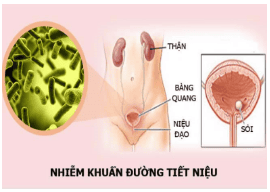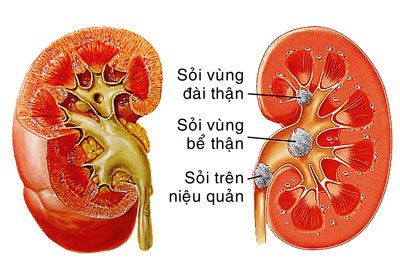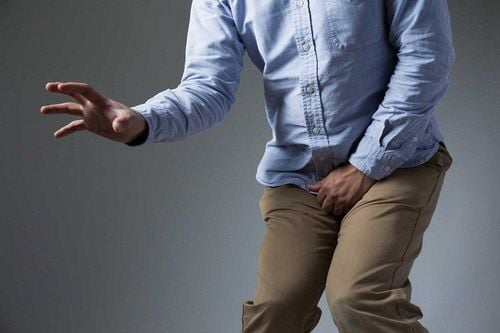This is an automatically translated article.
The article is written by Doctor Phan Phi Tuan - Dean and Doctor Pham Thieu Trung - Department of General Surgery - Vinmec International General Hospital, Phu Quoc.The relationship between urolithiasis and urinary tract infection is very complicated, it is difficult to determine what is the cause, what is the effect, which comes first, which comes after, which is likened to the story of "chicken and eggs". .
1. The relationship between bacteriuria and urolithiasis
Urinary tract stones and urinary tract infections are closely related. Bacterial infection is considered to be the cause of stones in about 15% of cases, and the presence of stones can also cause bacteriuria, which can be difficult to manage.

Nhiễm khuẩn đường tiết niệu
Previously, kidney stones were considered to be the result of urinary tract infections with bacteria that, in most cases of the genus Proteus, can produce urease, an enzyme that can break down urea in urine, due to which increases urine pH and promotes the precipitation and subsequent crystallization of struvite crystals.
This process follows a series of chemical reactions that lead to the formation of infectious stones. Urinary tract obstruction, neurogenic bladder, dysfunction, urinary catheter, are considered major risk factors for developing septic stones. However, when the urinary tract is blocked due to any cause, it can cause urine retention and cause bacterial infection, in which urinary stones are the most common.
2. Why are urinary tract infections with stones often difficult to treat?
When stones are formed, bacteria will enter and hide there. At this time, stones are not only a place that creates favorable conditions for the growth of bacteria through stagnation but also a shelter for bacteria to avoid the impact of antibiotics, making medical treatment very difficult. As bacteria grow, it can cause the stone to grow larger. This spiral is the cause of recurrent urinary tract infections and the possibility of sepsis as well as making stones more likely to recur after surgical intervention.
Another aspect, when there is an obstruction, the diagnosis problem before calculus intervention is very difficult because bacteria cannot be cultured from the urine stream and the manifestation of infection is submerged in the manifestation of gravel.
Therefore, sepsis complications after stone removal intervention increased significantly. In those cases, the mortality rate is very high. If urinary tract infection is detected due to stones, surgical intervention is also difficult because most surgical intervention methods are contraindicated when infection is present.
Conversely, if the blockage is not resolved, then the infection cannot be completely treated. After the stone is removed, it is necessary to treat both the cause of the stone formation in order to avoid the recurrence of the stone as well as the recurrence of infection later on.
3. Prevention
It can be said that urinary tract infection with ureteral stones is a complicated case. Therefore, you should avoid stones by eating properly such as:
Drink lots of water: drink about 2.5-3 liters of filtered water per day or eat and drink to have a urine output of over 2.5 liters in a day. day. Eat thin, eat less animal meat: eat foods containing less salt, eat less meat. Eat foods containing calcium in moderation, such as milk, cheese, etc. However, you should not avoid excessive calcium-containing foods because that will cause an imbalance in the absorption of calcium, causing the body to absorb calcium. more than oxalate from the intestine and will create urolithiasis, in addition to abstaining from foods containing calcium will cause osteoporosis. Abstain from foods containing a lot of oxalates such as solid tea, bran powder, cereals, water spinach, chocolate, coffee... Should drink a lot of orange juice, fresh lemon juice, grapefruit juice.

Uống nhiều nước để tránh sỏi
Vinmec International General Hospital is one of the hospitals that not only ensures professional quality with a team of leading medical doctors, modern equipment and technology, but also stands out for its examination and consultation services. comprehensive and professional medical consultation and treatment; civilized, polite, safe and sterile medical examination and treatment space. Customers when choosing to perform tests here can be completely assured of the accuracy of test results.
Customers can directly go to Vinmec Health system nationwide to visit or contact the hotline here for support.














